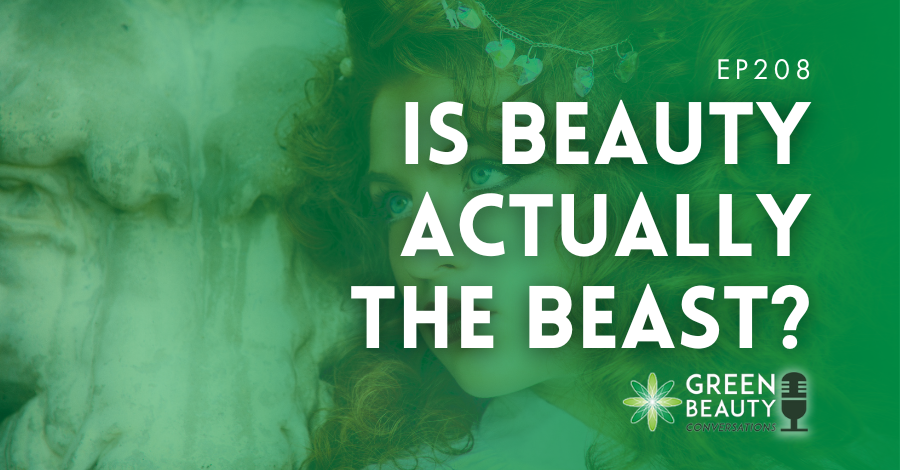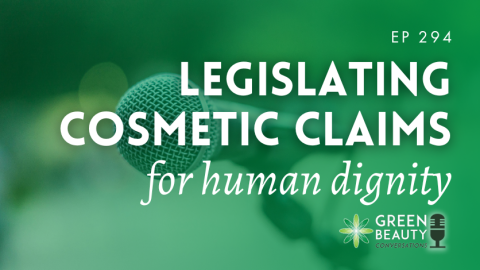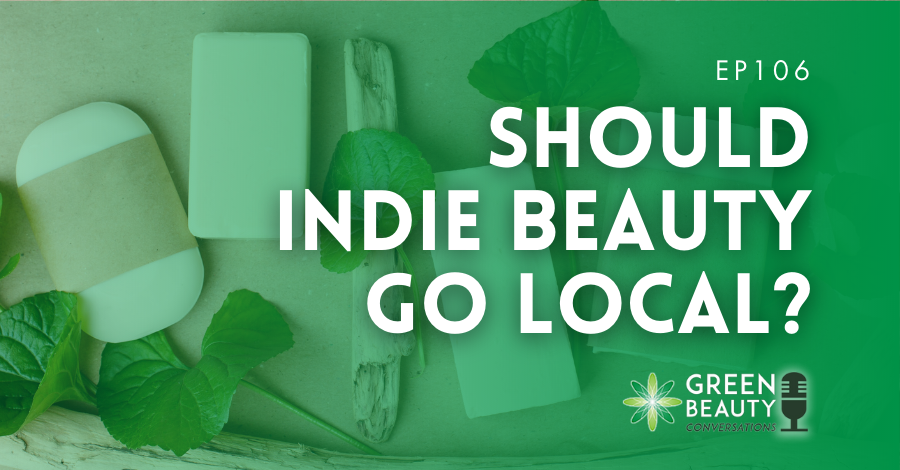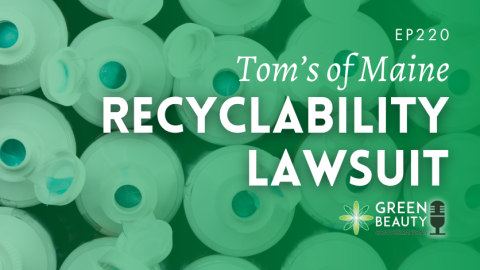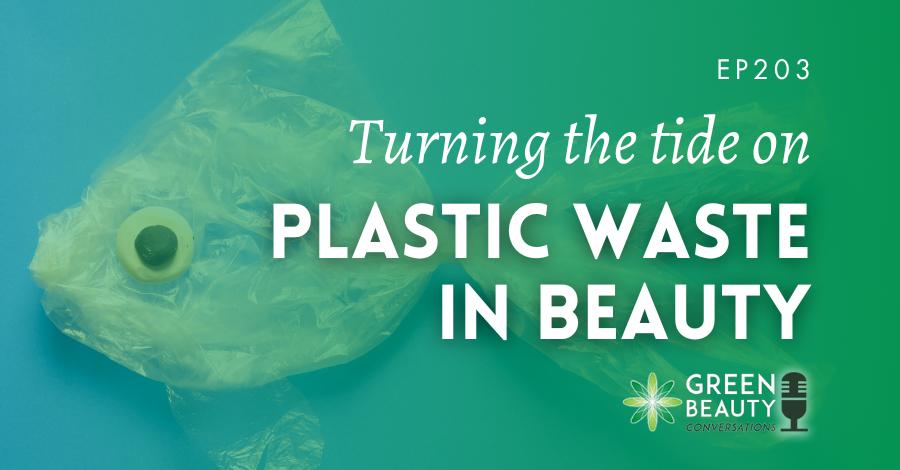What is clean beauty? It is one of the current buzz words in the cosmetics industry with major brands such as Drunk Elephant adopting the term as a key part of their marketing message. Large retailers such as Sephora now stock a selection of brands they consider clean and have adopted their own clean standards.
Despite its rapid rise, clean beauty can also be controversial. There is an increasing backlash from many in the industry, who believe that clean beauty is driven by fear mongering and poor science. As there is no official standard of what is meant by ‘clean’, consumers need to be aware that individual brands and retailers all have their own definition, which can vary greatly.
In this episode of the Green Beauty Conversations podcast, we discuss the origins of the term clean beauty, why it has been driven by concern regarding certain cosmetic ingredients and is intertwined with a consumer search for products that will support their wellbeing. We also discuss the Formula Botanica Philosophy on clean beauty, where we redefine what the term means and talk about how it should evolve.
Ingredient safety data sheets (SDS) will contain key information about toxicity and environmental impact. A key tool for formulators to understand some of these issues further. Misunderstanding of data and an ingredients ability to do harm is fuelling the clean beauty debate online and maintaining the controversy. We also explore the legalities of cosmetic claims in Episode 3: How to Comply with Cosmetics Regulations.
Listen on iTunes Listen on Stitcher Listen on YouTubeListen on Spotify
In this episode of the Green Beauty Conversations Podcast you will learn about:
- The origins of the word “Clean Beauty” in the cosmetics industry.
- We delve in to other current buzzwords such as “non-toxic” and talk about why when it comes to cosmetics, dose and exposure are so important to understanding toxicity. We also discuss the difference between acute and chronic toxicity.
- The Formula Botanica philosophy for the four points that we think should define Clean Beauty: 1) Bringing together the concepts of beauty and wellbeing 2) Transparency and Ethics 3) Clean for the planet as well as people 4) Clean products should be safe and hygienically made.
- Why transparency is particularly key for natural and indie beauty brands.
What is Clean Beauty? The Formula Botanica team redefines this controversial term #cleanbeauty #beauty #beautyindustry Share on X“Transparency in the beauty industry isn’t a trend, it is a movement” – Lorraine Dallmeier Director of Formula Botanica
Key take-outs include:
- Beauty products should be clean for the planet as well as people. Topics such as overall sustainability and pollution are becoming increasingly important for eco-conscious consumers. Formulators should also consider more complex issues such as their water and carbon footprints when creating their brands.
- At Formula Botanica we would like to see the conversation focus on overall sustainability looking at the whole picture, rather than single ingredients or a natural vs synthetics approach. Impact can be measured in different ways, including community and supply chain impact.
- Brands need to have a clear vision of their own philosophy and use this to connect with their consumer.
- Terms like Clean Beauty should not be used to make people guilty about their personal choices. Customers should be choosing products based on their own preferences and to enhance their personal wellbeing.
- Brands should be celebrating their ingredient choices rather than simply focusing on what isn’t in their products. The term Clean beauty shouldn’t be used as a way of denigrating mainstream or synthetic cosmetics.
- Clean Beauty should be hygienically made following GMP (Good Manufacturing Practice) and safely and efficiently preserved. We believe formulators should be proud to use preservatives, as this ensures consumer safety.
If you enjoyed this podcast why not listen to Episode 1: What does Natural Beauty mean?
Please like, share and subscribe
Thank you for joining us for this episode of the Formula Botanica: Green Beauty Conversations podcast. If you enjoyed this episode, please share, subscribe and review on iTunes or Stitcher so that more people can enjoy the show. Don’t forget to follow and connect with us on: Facebook, Twitter; and on Instagram.
FAQs
Why is clean beauty so expensive?
Clean beauty is a current trend in the natural beauty sector and is a somewhat controversial term. It has no clear definition and each natural, ‘clean’ beauty brand will interpret it as they wish. For some, this means formulating cosmetics not just free from various synthetic chemicals found in mainstream cosmetics, but also choosing high-end, high quality ingredients such as organic options. Synthetic ingredients can be, but not always, cheaper to use in cosmetics. By opting to formulate with organic, natural-only ingredients, some brands may need to charge a high retail price to the customer. Organic-farmed cosmetic ingredients can be more labour intensive to produce and are often sold by small-scale growers and manufacturers. Get familiar with ingredients’ listings on so-called clean beauty cosmetics to see if you feel their high prices are justified.
Where can I learn to formulate natural skincare and haircare?
Join us at Formula Botanica, where tens of thousands of students and followers take our free and paid online courses to learn how to formulate organic skincare and haircare for themselves or to sell and also how to set up a beauty brand and business.
Leave us a comment
Lorraine Dallmeier is a Biologist, Chartered Environmentalist and the CEO of Formula Botanica, the award-winning online organic cosmetic science school. Read more about Lorraine and the Formula Botanica Team.


